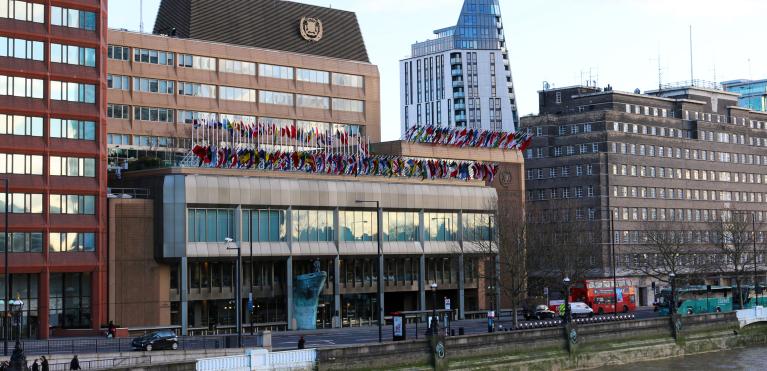Delay to IMO shipping decarbonisation vote is disappointing but work must continue immediately for a better outcome

The Green Hydrogen Organisation is disappointed that the International Maritime Organization has delayed a decision to adopt its Net Zero Framework by a year.
This is a major setback in efforts to decarbonise a sector which accounts for 80% of global trade and 3% of global emissions. At a time when the green hydrogen sector needs certainty and clear demand signals, it has instead been provided with delay for a market which we estimate could require 200 million tonnes of green ammonia and methanol by 2040.
Adoption of the Net Zero Framework at the IMO this week in London would have approved important measures to reduce shipping emissions by 20-30% in 2030 and 70-80% in 2040, with zero or near-zero emissions fuels made from renewables like green ammonia or green methanol representing 5-10% of all shipping fuels by the end of this decade.
The decision to delay stands in stark contrast to strong support just six months ago when IMO member states approved the measures in principle. Many governments which support the measures, including from Small Island Developing States which are on the frontlines of climate change, were pressured this week into agreeing to a delay due to threats of penalties, fees, visa restrictions and sanctions on officials.
In a letter of support to delegates being put under pressure, Fortescue Executive Chair and GH2 founder Dr Andrew Forrest noted the “intimidatory tactics that are impacting your ability to vote with your conscience”.
The decision means delay but crucially it is not defeat for these measures which would represent the first ever globally mandated emissions targets for shipping and a victory for multilateralism.
It is now essential for green fuel producers, shipowners, regulators and other partners to regain the momentum and come together over the next year to ensure that the framework is adopted.
That work must begin immediately, with important discussions taking place over the coming days defining zero- and near-zero emission fuels, mechanisms for rewarding their use, emissions accounting and certification.
Regions like Europe must double down on their own maritime decarbonisation policies such as FuelEU Maritime and the EU Emissions Trading System for shipping. It will also be essential to engage at the highest levels with governments which were pressured into lowering their ambition.
But we must not be complacent. There are governments which would have preferred to see this framework sunk entirely. That would have been a disaster for the climate, energy security and long term prosperity. Green hydrogen fuels made from renewables offer the surest and most sustainable way to decarbonise shipping and our resolve to achieve this is stronger than ever.